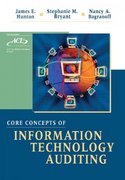
Assume the current operating band of the overnight loan rate is from 1.5 - 2.0% and the current (equilibrium) overnight loan rate is presently at the mid-point of the range. Assume the bonds the Bank of Canada uses in its open market operations (SPRA or SRA) are 15-year government bonds with a 3% coupon rate with a face value of $1000. (a) Now assume that there is a decrease in the demand for reserves by the chartered banks so that the new equilibrium overnight loan rate (OLR) moves to 1.60%. Use a fully labelled diagram of the market for overnight loans to show both the original and this new equilibrium. (b) What is the equilibrium bond price when the interest rate decreases to 1.60%? (c) Explain precisely how the Bank of Canada can operate to move back to the target OLR by using open market operations. (i) What type of open market operation would they wish to conduct (SPRA or SRA)? Why? (ii) At what price will the Bank of Canada buy sell the 15-year bonds described above on the first day of the SPRA or SRA (coupon rate of 3% and face value of $1000)? Show and explain all your calculations. (iii) Explain why the chartered banks willingly participate in this open market operation? (d) What does this open market operation do to the settlement (or reserve) balances in the system (increase or decrease)? Briefly explain why. Do not just make a conclusion. Show this change in reserves and the resulting equilibrium point in your diagram above. (e) Briefly explain what transaction takes place the next day (the second part of the SPRA or SRA). At what price (measured in $) will the bonds trade at on the second day of the SPRA or SRA? Explain. (f) As a result, on the second day (only) will the Bank of Canada have to neutralize reserves by switching government deposits? If so, which direction? Explain. Assume the current operating band of the overnight loan rate is from 1.5 - 2.0% and the current (equilibrium) overnight loan rate is presently at the mid-point of the range. Assume the bonds the Bank of Canada uses in its open market operations (SPRA or SRA) are 15-year government bonds with a 3% coupon rate with a face value of $1000. (a) Now assume that there is a decrease in the demand for reserves by the chartered banks so that the new equilibrium overnight loan rate (OLR) moves to 1.60%. Use a fully labelled diagram of the market for overnight loans to show both the original and this new equilibrium. (b) What is the equilibrium bond price when the interest rate decreases to 1.60%? (c) Explain precisely how the Bank of Canada can operate to move back to the target OLR by using open market operations. (i) What type of open market operation would they wish to conduct (SPRA or SRA)? Why? (ii) At what price will the Bank of Canada buy sell the 15-year bonds described above on the first day of the SPRA or SRA (coupon rate of 3% and face value of $1000)? Show and explain all your calculations. (iii) Explain why the chartered banks willingly participate in this open market operation? (d) What does this open market operation do to the settlement (or reserve) balances in the system (increase or decrease)? Briefly explain why. Do not just make a conclusion. Show this change in reserves and the resulting equilibrium point in your diagram above. (e) Briefly explain what transaction takes place the next day (the second part of the SPRA or SRA). At what price (measured in $) will the bonds trade at on the second day of the SPRA or SRA? Explain. (f) As a result, on the second day (only) will the Bank of Canada have to neutralize reserves by switching government deposits? If so, which direction? Explain







